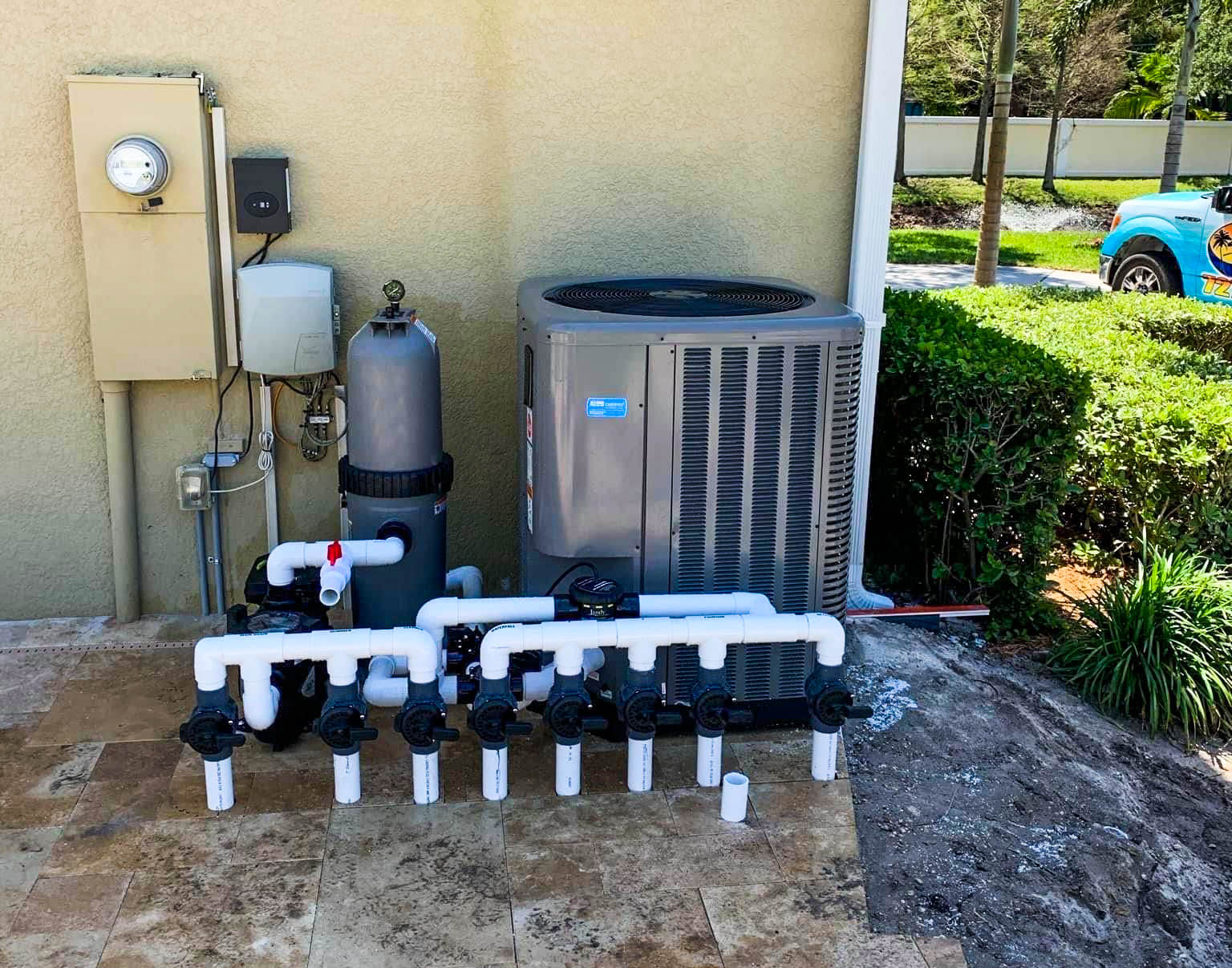
The Essential Guide to Choosing and Using Pool Timers
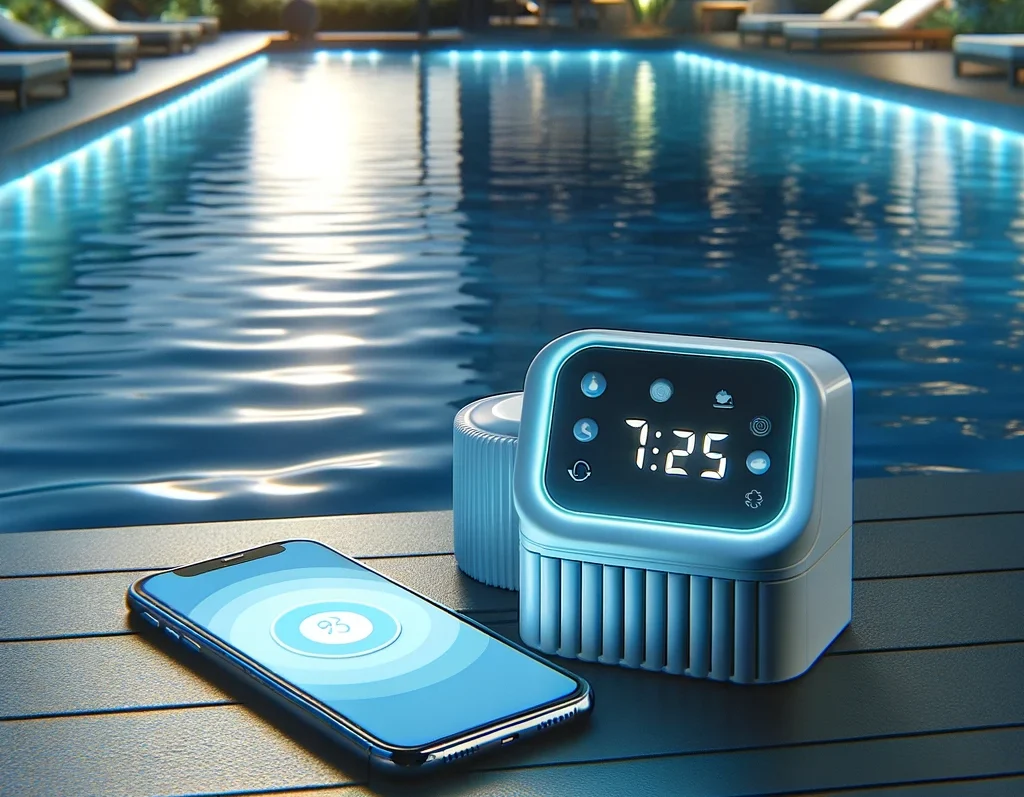
Owning a swimming pool is a luxury that comes with its own set of responsibilities. Key among these is ensuring the water remains pristine and inviting, which is where the role of a pool pump becomes indispensable. However, the unsung hero in maintaining your pool’s health is the pool timer. Today, we will talk about pool timers, exploring their various types and guiding you on how to select the perfect one for your pool.
The Role and Function of Pool Timers in Pool Maintenance
Imagine a scenario where your pool water is always the epitome of cleanliness, without you having to constantly monitor it. This is the convenience that a pool timer offers. Essentially, a pool timer is the brain behind your pool pump, dictating when the pump should activate or rest. Why is this important? Consistent water circulation is critical in keeping the pool water free from algae and debris, ensuring it’s always safe and enjoyable for a swim.
A standard pool pump without a timer can lead to two extremes – either running it less than needed, leading to a murky pool, or overworking it, which can spike your energy bills and wear out the pump prematurely. Here, a pool timer steps in as a game-changer. It automates the pump’s operation, ensuring it runs just the right amount of time daily. This not only keeps your pool in top condition but also optimizes energy usage, leading to cost savings.
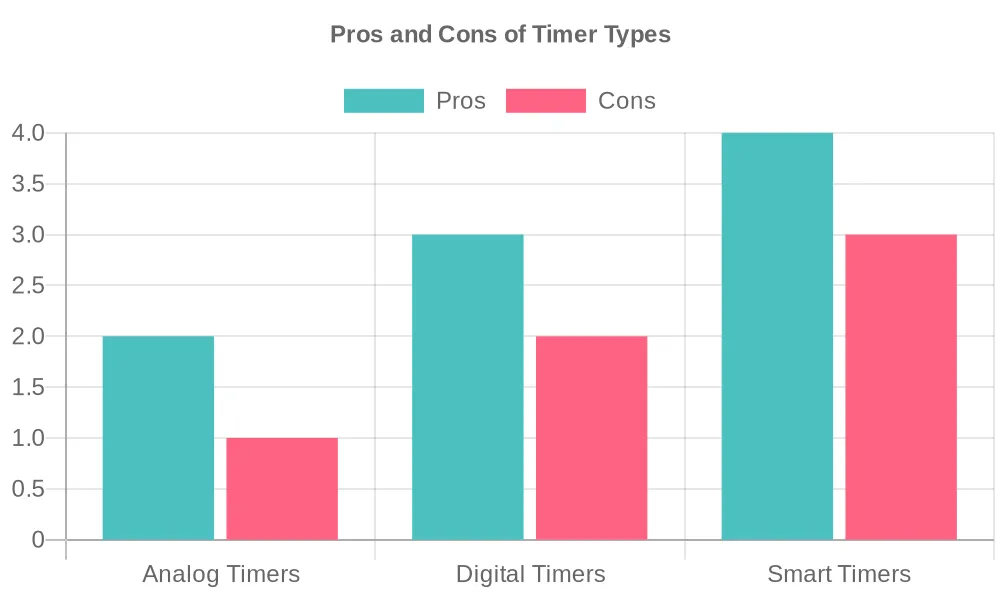
Latest


How Will Artificial Intelligence Help Pool Companies in 2024

What Factors Determine Pool Heater Costs In 2024
Categories
Understanding How Pool Timers Work
To appreciate the functionality of pool timers, it’s essential to grasp their operation. Pool timers are connected to your pool pump and are configured to turn the pump on and off at pre-set times. For instance, if your pool requires 6 hours of filtration daily, you can set the timer to activate the pump at 10 a.m. and turn it off at 4 p.m. This automation means you no longer have to remember to switch the pump on and off, a task that can be easily overlooked during busy days.
Different Types of Pool Timers
When it comes to pool timers, one size does not fit all. The market offers a range of timers, each with its distinct features and functionalities. Understanding the differences is key to choosing a timer that not only suits your pool’s needs but also aligns with your lifestyle and budget. Let’s dive into the three primary types of pool timers: analog, digital, and smart.
- Analog Pool Timers: The Classic Choice
Analog timers, often regarded as the traditional choice, are known for their simplicity and reliability. These timers function using a mechanical process where you set the on and off times using ‘trippers.’ These trippers are physical pins that you insert around a dial, representing different times of the day. When the timer’s hand hits a tripper, it either turns the pump on or off.
Pros:
- Cost-Effective: Analog timers are usually the most affordable option.
- Durability: Their simple design makes them robust and long-lasting.
Cons:
- Limited Flexibility: They offer less precision and fewer customization options.
- Basic Functionality: Lacks advanced features found in more modern timers.
- Digital Pool Timers: The Modern Upgrade
Digital timers are a step up from analog in terms of functionality and precision. These timers feature a digital interface, allowing you to program specific on and off times with greater accuracy. Many digital timers come with additional features such as built-in calendars for day-specific scheduling, random operation modes to prevent predictable patterns (useful in algae control), and manual overrides.
Pros:
- Enhanced Accuracy: Precise control over timing schedules.
- Additional Features: Offers more functionalities like calendar integration and random modes.
Cons:
- Cost: Generally more expensive than their analog counterparts.
- Programming Complexity: Some users may find digital timers more challenging to program.
- Smart Pool Timers: The Connected Solution
At the forefront of pool timer technology are smart timers. These are a subset of digital timers that offer remote control capabilities. You can operate these timers via a smartphone app or a smart home system, allowing you to manage your pool pump from anywhere. This is particularly useful if you’re away from home and need to adjust the pool pump settings.
Pros:
- Remote Accessibility: Control your pool timer from any location.
- Versatile Features: Includes all the functionalities of digital timers, with the added benefit of connectivity.
Cons:
- Higher Cost: Smart timers are typically the most expensive option.
- Dependency on Wi-Fi: Requires a stable internet connection for remote features.
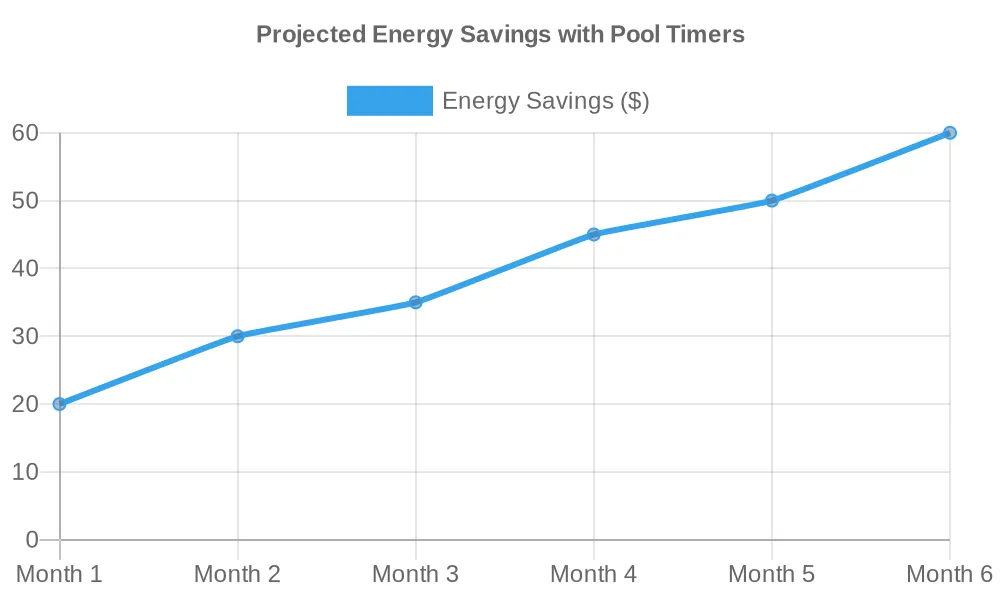
The Benefits of Using Pool Timers
Incorporating a pool timer into your pool maintenance routine offers several advantages that go beyond just convenience. These benefits highlight why a pool timer is not just a luxury but a smart, cost-effective investment for any pool owner.
- Energy Efficiency and Cost Savings
One of the primary benefits of using a pool timer is the significant reduction in energy consumption. By ensuring that the pool pump operates only for the necessary duration, you avoid the wastefulness of running it continuously. This optimization directly translates to lower energy bills, making pool timers an economically savvy choice. Additionally, by setting the timer to operate during off-peak hours, you can capitalize on lower electricity rates, further reducing costs.
- Extended Equipment Lifespan
The constant operation can strain your pool pump, leading to quicker wear and tear. By using a timer, you ensure that the pump runs only when needed, thereby prolonging its lifespan. This not only saves money in the long run but also means fewer repairs and maintenance hassles.
- Enhanced Pool Health and Hygiene
Regular and efficient circulation is crucial for maintaining the health of your pool. A timer ensures that your pool is regularly cleaned and circulated, preventing the buildup of algae and debris. This consistent maintenance keeps the pool water clean, clear, and safe for use.
- Convenience and Peace of Mind
With a pool timer, you can ‘set it and forget it.’ Once programmed, the timer takes over the responsibility of switching the pump on and off, freeing you from the task of manual monitoring. This is especially beneficial for busy individuals, providing peace of mind that the pool is being properly maintained without constant oversight.
Choosing the Right Pool Timer
Selecting the right pool timer boils down to understanding your specific needs and preferences. Consider factors like your budget, the complexity of the timer you’re comfortable with, and the features you deem essential. Whether you opt for the simplicity of an analog timer, the precision of a digital one, or the advanced features of a smart timer, the key is to choose a timer that aligns with your lifestyle and pool maintenance goals.
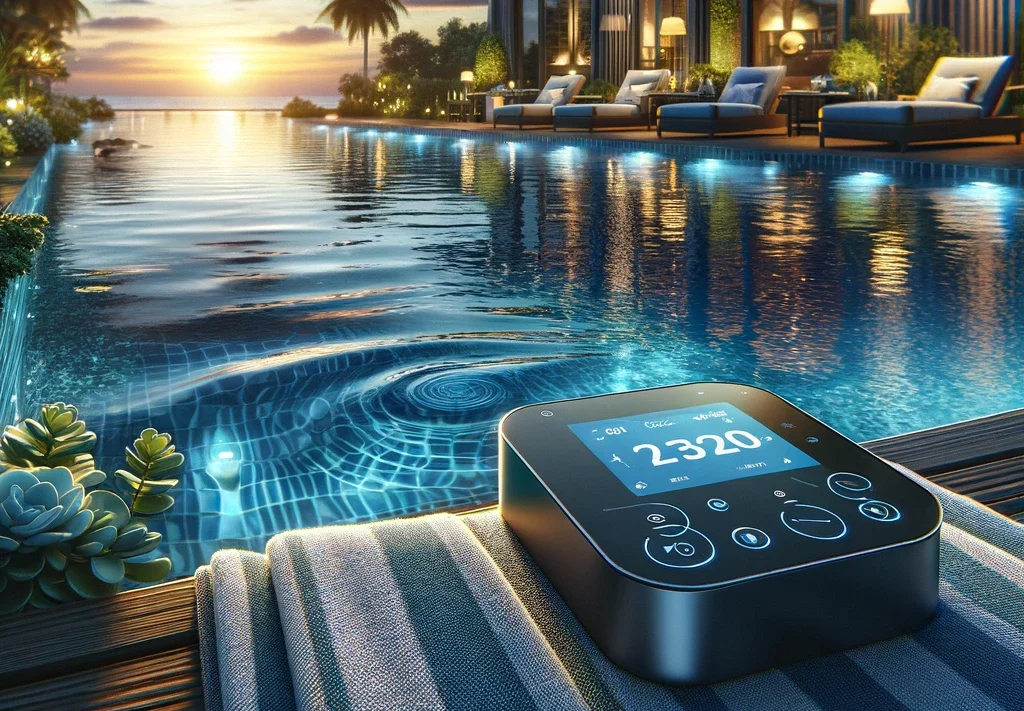
Conclusion
In this guide, we’ve navigated through the essential aspects of pool timers, from their basic functions to the different types available and the benefits they offer. Pool timers are more than just a convenience; they are a smart investment that optimizes your energy usage, extends the life of your pool equipment, and ensures your pool remains a healthy and enjoyable oasis.
By now, you should be well-equipped to make an informed decision on the best pool timer for your needs. Remember, a well-chosen pool timer not only simplifies your life but also contributes to the overall health and longevity of your pool.
Latest

DIY Pool Pump Cover Ideas for 2024

How Will Artificial Intelligence Help Pool Companies in 2024

What Factors Determine Pool Heater Costs In 2024
Categories
YOU'RE NOT IN THIS ALONE
We are with you every splash of the way
Need a pool fix or looking for an upgrade? We’re just one click away to help with all your pool needs.

